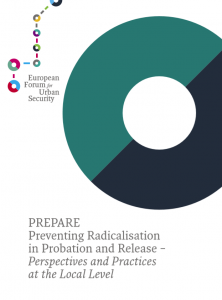The moment a convicted offender leaves prison is particularly important because this is when they can either successfully reintegrate back into society or on the contrary, be drawn into reoffending. This is true for all types of offenders and particularly so for those sentenced for offences related to violent extremism or terrorism. For them, the time of release and probation offers a precious window of opportunity to ensure they have indeed abandoned the radical ideologies that inspired their crime and are supported in re-integrating into society.
Local authorities have a key role to play in coordinating multi-agency cooperation to this end. Their experience in conducting local prevention policies against radicalisation that leads to violent extremism and in minimising the risk of reoffending makes them important players when it comes to supporting the rehabilitation and reintegration of extremist offenders.
The guidebook maps out and assesses the strategies and plans of several European countries to prevent radicalisation through prison, probation and release with a special focus on the role of local authorities in this process, and also by identifying promising practices of reintegration and rehabilitation. It presents the state of the art in seven European countries, showcases nine innovative local pilot projects conducted by municipalities across Europe, and outlines the way forward to better equip local authorities to re-socialise offenders and prevent radicalisation in probation and release.








